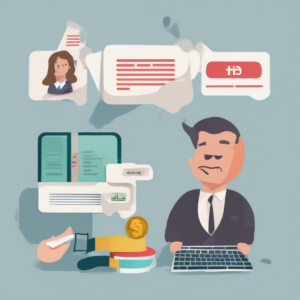Navigating the Labyrinth: A Comprehensive Guide to Debt Relief for Veterans
The transition from military service to civilian life can be challenging, often complicated by financial burdens. Many veterans face significant debt, stemming from various sources, including student loans, medical bills, credit card debt, and mortgages. This guide provides a comprehensive overview of debt relief options specifically available to veterans, outlining the resources and strategies to navigate this complex landscape.
Understanding Veteran Debt Challenges
Veterans face unique financial obstacles. The frequent relocation inherent in military life can disrupt credit history. Deployment can lead to missed payments and accumulating debt. The transition back to civilian employment may involve periods of unemployment, further exacerbating financial difficulties. Furthermore, service-connected disabilities can result in substantial medical expenses, adding to the debt burden.
- Relocation and Credit History: Frequent moves can make it difficult to establish and maintain a strong credit history, leading to higher interest rates and limited access to favorable loan terms.
- Deployment and Missed Payments: Deployment often leads to disruptions in income and the inability to make timely payments on loans and credit cards.
- Unemployment and Transition Challenges: The transition to civilian employment can be lengthy and difficult, resulting in periods of unemployment and increased financial stress.
- Service-Connected Disabilities and Medical Expenses: Veterans with service-connected disabilities may incur significant medical expenses, including treatment, therapy, and assistive devices.
- Predatory Lending Practices: Veterans may be more vulnerable to predatory lending practices, leading to high-interest loans and debt traps.
Debt Relief Programs for Veterans
Several federal and state programs are designed to assist veterans in managing and reducing their debt. These programs offer a variety of options, from debt consolidation and repayment assistance to debt forgiveness programs. It is crucial to understand the eligibility criteria and application processes for each program.
1. Department of Veterans Affairs (VA) Benefits
The VA offers several programs that can indirectly help veterans manage their debt. These programs primarily focus on providing financial assistance and support, rather than directly addressing debt reduction.
- VA Home Loans: The VA home loan guarantee program allows veterans to purchase a home with little or no down payment, potentially reducing housing costs and freeing up funds to address other debts.
- VA Disability Compensation: Veterans with service-connected disabilities can receive monthly compensation, which can be used to pay down debt.
- VA Vocational Rehabilitation and Employment (VR&E): This program helps veterans with service-connected disabilities receive training and employment assistance, leading to improved financial stability.
- VA Healthcare: Access to affordable healthcare through the VA can reduce medical expenses and debt related to healthcare costs.
2. Student Loan Forgiveness Programs
Several student loan forgiveness programs may be available to veterans, depending on their service history and type of loan. These programs offer partial or complete forgiveness of student loan debt.
- Public Service Loan Forgiveness (PSLF): This program forgives the remaining balance on federal student loans after 120 qualifying payments while working full-time for a qualifying government or non-profit organization. Military service may qualify.
- Teacher Loan Forgiveness Program: This program forgives up to $17,500 of federal student loan debt for teachers who have completed five years of full-time teaching in a low-income school or educational service agency.
- Income-Driven Repayment (IDR) Plans: IDR plans adjust monthly payments based on income, making repayment more manageable. Veterans may find these plans beneficial.
3. Debt Management and Consolidation
Veterans can explore debt management options to consolidate their debts, negotiate lower interest rates, and create a more manageable repayment plan.
- Debt Consolidation Loans: A consolidation loan combines multiple debts into a single loan with a potentially lower interest rate and simplified repayment schedule.
- Debt Management Plans (DMPs): Credit counseling agencies can help veterans create a DMP, which involves negotiating with creditors to reduce interest rates and monthly payments.
- Balance Transfers: Transferring high-interest credit card balances to a card with a lower interest rate can reduce overall interest payments.
4. Bankruptcy
In extreme cases, bankruptcy may be a necessary option for veterans struggling with overwhelming debt. It is important to consult with a bankruptcy attorney to understand the implications of filing for bankruptcy.
- Chapter 7 Bankruptcy: This type of bankruptcy involves liquidating non-exempt assets to pay off creditors. It can eliminate certain debts, but it can also negatively impact credit history.
- Chapter 13 Bankruptcy: This type of bankruptcy involves creating a repayment plan over three to five years. It allows veterans to keep their assets but requires regular payments to creditors.
Finding Help and Resources
Numerous organizations provide assistance to veterans struggling with debt. These organizations offer guidance, counseling, and support in navigating the complex world of debt relief.
- Department of Veterans Affairs (VA): The VA provides various resources and programs to assist veterans with their financial challenges. Their website is a valuable source of information.
- National Foundation for Credit Counseling (NFCC): The NFCC is a non-profit organization that provides credit counseling and debt management services. They offer free or low-cost financial guidance.
- Military OneSource: This resource provides comprehensive support services to military members and their families, including financial counseling.
- Local Veterans Organizations: Many local veterans organizations offer assistance with financial matters, including debt counseling and referrals to relevant programs.
- Non-profit Credit Counseling Agencies: Numerous non-profit credit counseling agencies provide free or low-cost debt management services.
Important Considerations
Before pursuing any debt relief option, veterans should carefully consider the following factors:
- Eligibility Requirements: Each program has specific eligibility requirements, so it’s crucial to verify eligibility before applying.
- Potential Impact on Credit Score: Some debt relief options may negatively impact credit scores. It is essential to weigh the long-term consequences.
- Hidden Fees and Costs: Be wary of programs that charge excessive fees or hidden costs. Seek guidance from reputable organizations.
- Long-Term Financial Planning: Debt relief should be part of a broader financial plan that includes budgeting, saving, and responsible financial management.
- Seek Professional Advice: Consult with a financial advisor or credit counselor for personalized guidance and support in developing a financial plan.
Conclusion (Not included as per instructions)





